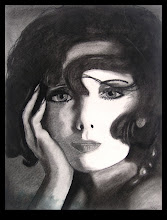
Broken Birds – The Story of My Momila, by Jeannette Katzir, is Jaclyn’s (Katzir) memoir of her siblings, Shlomo, Shirley, Steven and Nina, and their war-wrecked parents, Channa and Nathan (all names changed). Channa may have escaped the Holocaust, but she carried its horrors with her, ingraining her own fear of outsiders—any non-family member—into her children. Her fear of being left without her family (again) and her fear of betrayal weaved its way into her children’s very souls and colored the life decisions they would make. Jaclyn and her siblings lived their lives well after the war, but always within its shadow.
Raised by a mother whose family, faith, and trust were ripped from her as she spent her childhood fighting against Hitler’s tyranny, the five siblings were taught to value blood above all—including their own husbands and wives. Often despicable and cruel to one another, Channa remained vigilant in her commandment that the siblings remain bonded, overlooking all injustices.
Katzir’s emotions are raw, unabridged, and unapologetic. Her story draws from both the intense love she feels for her family and the misery that her family creates. In an interview with Jesse Kornbluth of Huffington Post, Katzir admits that she "can't trust Steven. And Shirley is too dangerous. She's [her] cocaine…" She knows Shirley is not good for her, but keeps coming back for more abuse. Maybe this time will be different….
I found the story a bit mundane at times, but compelling, heart wrenching, and frustrating. I found myself yelling at Shirley’s utter disregard for her sibling’s emotions. Page after page I wondered when Jaclyn would finally choose herself and her husband over her siblings. I wanted, strike that, I needed to know what would happen next in the lives of these five siblings and their war-torn parents.
Channa’s death opens the door to truths that the Poltzer children have long repressed. Without their mother urging peace and binding the siblings together, unresolved and long overdue conflicts rise to the forefront where they can no longer be suppressed. The Poltzer children must define and redefine their relationships with one another without the “glue” of their momila.
This book is reminiscent of bits of my own past. My mother’s brothers and sisters were torn apart by my grandmother’s death. Since her death in 1990, I have only seen three of my 16 aunts and uncles. My grandmother was not of wealth. In fact, her only “riches” was her wedding ring, which my mother placed back on her finger before her burial. My grandmother had no haunting past to speak of, no bittersweet memories of her youth. She did not face the hardships of Channa and Nathan. Still, her death tore her family apart. Sadly, death tends to bring out the best in some, the worst in many.
Katzir weaves a compelling and disturbing tale of familial relationships and sibling rivalry seeped in the shadows of an unimaginable war that forever marks future generations. It is a story of the bitter personal battles that those broken by tragedy unintentionally pass down to their children, and one woman’s triumph over it.







